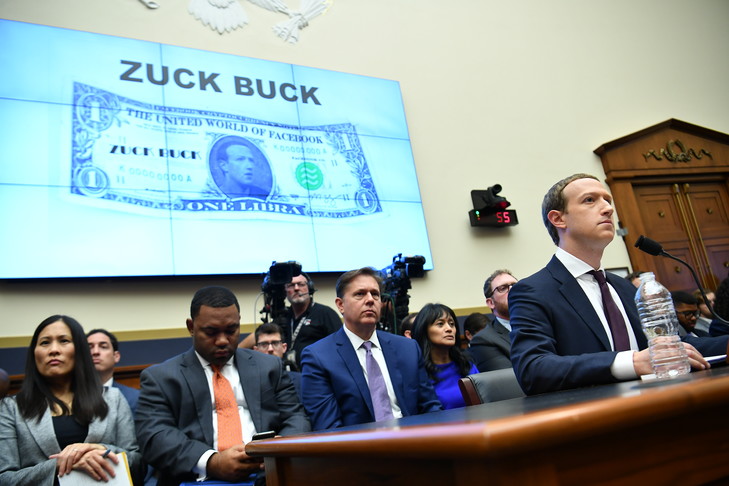Author: Tim Fries at The Tokenist
U.S. Congress and Digital Asset Regulation in 2019
2019 has been a busy year for the U.S. government in terms of digital asset regulation. At the beginning of the year, Congressman Warren Davidson (R-OH) introduced the Token Taxonomy Act of 2019.
In the summer, Facebook revealed plans for its controversial digital asset Libra. Since its initial unveiling, Libra has been met with skepticism from regulators across the globe and even initial backers such as Mastercard and Visa.
Now, as the year comes to a close, a discussion draft has surfaced from U.S. lawmakers. The bill, referred to as the ‘Crypto-Currency Act of 2020’, was introduced by U.S. Representative Paul Gosar (R-AZ).
According to the draft, the bill’s purpose aims to attribute regulatory clarity regarding which federal agencies are responsible for the different types of digital assets. The corresponding agencies are then responsible for informing the public on the appropriate licenses, certifications, or registrations needed to issue or trade digital assets.
The Cryptocurrency Act of 2020 Explained
The bill identifies three different types of digital assets. Each type has a corresponding federal agency required to provide regulation.
The three different asset-types include crypto-currencies, crypto-commodities, and crypto-securities. The bill went on to identify three agencies as ‘Federal Digital Asset Regulators’. These include the Commodity Futures Trading Commission (CFTC), the Securities and Exchange Commission (SEC), and the Financial Crimes Enforcement Network (FinCEN).
Each agency will work as the sole authoritative government agency for one digital asset type: FinCEN will be responsible for crypto-currencies, the SEC crypto-securities, and the CFTC crypto-commodities. Though still a draft, the bill went on to identify basic responsibilities as well.
Every ‘Federal Digital Asset Regulator’ (also referred to as ‘Federal Crypto Regulators’) must maintain a public record of all licenses, certifications, and/or registrations that it requires to create, issue, or trade digital assets. In addition, FinCEN must work with the Secretary of the Treasury to create similar rules enforced by traditional financial institutions in order to trace cryptocurrency transactions.
What’s a Crypto-Commodity, Crypto-Currency, or Crypto-Security?
According to the bill, crypto-currencies include representations of United States currency or synthetic derivatives resting on a blockchain or decentralized cryptographic ledger. These include reserve-backed digital assets which are fully collateralized in a correspondent bank account, such as stablecoins. Crypto-currencies also encompass synthetic derivatives determined by decentralized oracles or smart contracts and collateralized by other crypto-currencies, crypto-commodities, or crypto-securities.
Crypto-commodities are defined as economic goods or services that markets treat with no regard for who produced the goods or services, feature full or substantial fungibility, and rest on a blockchain or decentralized cryptographic ledger.
Lastly, crypto-securities include all debt, equity, and derivative instruments that rest on a blockchain or decentralized cryptographic ledger. There’s one exception here, however.
A crypto-security does not include a synthetic derivative both operated and registered with the Department of the Treasury as a money services business and operates in compliance with the Bank Secrecy Act as well as additional anti-money laundering, anti-terrorism, and screening requirements of the Office of Foreign Assets Control and the Financial Crimes Enforcement Network.
The Cryptocurrency Act of 2020 and Facebook’s Libra
There is much speculation with regard to the reasoning behind the newly developing legislation. The most obvious reasoning is regulatory preparation for Facebook’s developing digital asset, Libra.
In November of 2019, a bipartisan group of U.S. Senators proposed a bill entitled ‘Management Stablecoins are Securities Act of 2019’. The legislation — yet to be approved — claims stablecoins, to include Libra, are securities. Under this scenario, Facebook’s digital asset would be deemed a security token, and subject to the corresponding regulations.
In another case, Representative Davidson — author of the Token Taxonomy Act of 2019 — has also said Libra should be regulated as a security. A former CFTC advisor has argued the forthcoming digital asset could be regulated as both a security and a commodity.
Ultimately, the verdict is yet to be revealed. What we can see however, rather clearly, is a push for clearer regulatory frameworks regarding the use of digital assets in the U.S. It should hardly be seen as a coincidence that the bulk of this push has come just after talks of Libra entered the scene.
Whether anything substantial comes to fruition — and precisely what that means for Libra and other digital assets — we’ll have to wait and see.




